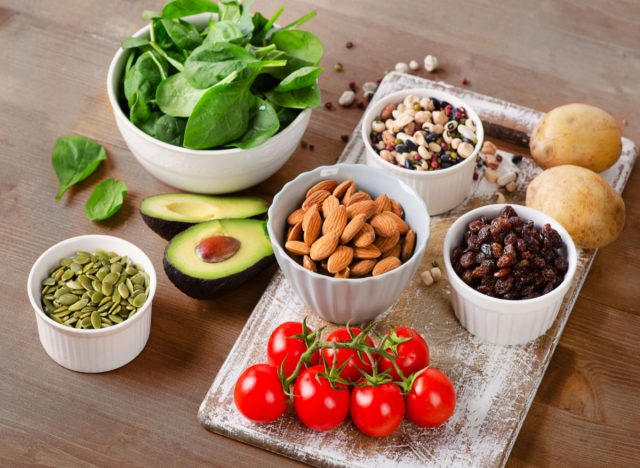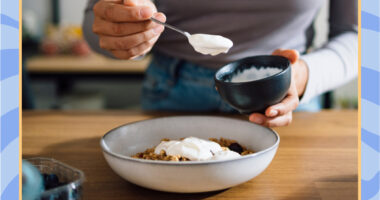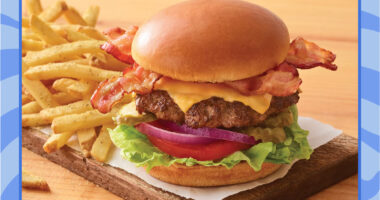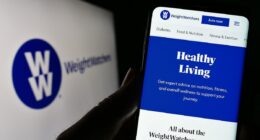High blood pressure is often called “the silent killer” because many people are unaware that they have the potentially deadly condition. Nearly half of U.S. adults—about 116 million Americans—have high blood pressure, according to the Centers for Disease Control and Prevention (CDC). Even though high blood pressure may have no overt signs or symptoms, it can lead to life-threatening conditions like heart attack and stroke.
High blood pressure, or hypertension, occurs when you have an elevated amount of force or pressure of blood pushing against the walls of your arteries. If the pressure on the walls of the arteries is persistent this can cause a heart attack, stroke, heart failure, or kidney disease.
A blood pressure reading consists of two numbers: systolic and diastolic pressure. An example of a healthy level would be 110/70. Normal blood pressure is a systolic reading of up to 120 millimeters of mercury (mm Hg) and diastolic of up to 80 mm Hg. High blood pressure is defined as 140 mm Hg or higher of systolic and 90 mm Hg for diastolic.
When it comes to preventing or lowering your blood pressure your first step should be eating a healthy diet that consists primarily of plant-based foods to up the potassium in your meals and snacks.
Getting potassium-rich foods in your diet is the most crucial eating habit for high blood pressure
Potassium is the mineral that can help neutralize sodium in your diet and acts in myriad other ways to moderate blood pressure. One of the main reasons why hypertension rates are so high in the U.S. is that we have a high intake of sodium and a low intake of potassium. The ratio between sodium and potassium is thought to be critical to help control your pressure.
A plant-rich diet that packs in a lot of potassium has the added benefit of aiding your blood pressure by helping you slim down, which is another impactful way to lower blood pressure.
According to the Mayo Clinic, your blood pressure might go down by about 1 mm Hg with each kilogram (2.2 pounds) of weight lost.
READ RELATED: Brazilian man, 54, shoves a DUMBBELL in his rectum for 'sexual pleasure'
How to get more potassium-rich foods in your diet


To plus up potassium in your meals and snacks, a proven way to meet the recommended intake for potassium each day is to follow the number of servings of produce, grains and low-fat or fat-free dairy products that are part of the DASH (Dietary Approaches to Stop Hypertension) diet provides three times more potassium than the average American diet.
A study published in the Journal of the American Heart Association reported that following the DASH diet is the most effective nonpharmaceutical approach to reduce blood pressure. Following the DASH diet resulted in about a 7 mmHg reduction in systolic blood pressure and a 3.5 mmHg reduction in systolic blood pressure.
Here are the main food groups and number of servings recommended in the DASH diet to help up the potassium in your diet.
- Vegetables: 4 to 5 servings a day. One serving is 1 cup raw leafy green vegetable, 1/2 cup cut-up raw or cooked vegetables, or 1/2 cup vegetable juice.
- Fruits: 4 to 5 servings a day. One serving is one medium fruit, 1/2 cup fresh, frozen or canned fruit, or 1/2 cup fruit juice.
- Grains: 6 to 8 servings a day. One serving is one slice of bread, an ounce of dry cereal, or 1/2 cup of cooked cereal, rice, or pasta.
- Fat-free or low-fat dairy products: 2 to 3 servings a day. One serving is 1 cup milk or yogurt, or 1 1/2 ounces cheese.
- Nuts, seeds, and legumes: 4 to 5 servings a week. One serving is 1/3 cup nuts, 2 tablespoons peanut butter, 2 tablespoons seeds, or 1/2 cup cooked legumes (dried beans or peas).
How much potassium is enough?
The National Institutes of Health recommend that women should get 2,600 milligrams and men should get 3,400 milligrams of potassium every day. Most of us fall short of this daily intake goal and it is considered a nutrient of public health concern. Recent national data show that men get on average about 3,000 mg per day while women are getting around 2,300 milligrams per day.
Upping the amount of potassium in a heart-healthy diet is one of the best ways to control your blood pressure. A simple Google search of DASH diet menus will provide ample inspiration to get you started.
Julie Upton, MS, RD, CSSD
Source:











